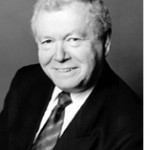By Rabbi Dow Marmur

JERUSALEM — “If there’s something that frightens me about Holocaust remembrance it’s the recognition of the revolting processes that occurred in Europe in general, and particularly in Germany, back then – 70, 80 and 90 years ago – and finding signs of them here among us today in 2016.”
These words were spoken by none other than Israel’s Deputy Chief of Staff Major-General Yair Golan at an official Holocaust commemoration a day or so ago. It’s reasonable to speculate that he may have had in mind the popular reaction in support of the soldier who recently shot an Arab terrorist in Hebron after the latter had been rendered harmless. The soldier is due to stand trial for manslaughter, but thousands of Israelis have demonstrated in his support urging the army to drop the charges.
Not unexpectedly, the two cabinet ministers who reacted strongly against Golan’s statement are members of the Habayit Hayehudi Orthodox-nationalist party: Justice Minister Ayelet Shaked and Education Minister and party leader Naftali Bennett. As a result, Golan backtracked somewhat stating that “he had no intention whatsoever of comparing the Israel Defense Forces and the State of Israel to the horrors that occurred in Germany 70 years ago.”
We’ve every reason to believe the clarification because those of us who heard or read the original statement well understood that he wasn’t condemning Israel but reacting against certain elements in its leadership. Bennett and Shaked may have had good reason to feel implicitly attacked.
The seeming division within Netanyahu’s cabinet appears to be reflected in the statement by Defense Minister Moshe Ya’alon, comparatively a more moderate voice in the government, who expressed his “complete faith” in General Golan. However, if the present coalition continues, it’s unlikely that this Deputy will succeed the current Chief of Staff, as has often been the practice in the past. The far right wing of this right-wing government will do its utmost to stop it.
Though I’ve just written about the two kinds of Holocaust commemoration in which our family participated – one in our place of residence at which General Golan was also present, the other in our congregation – I’m returning to the subject in order to point to the tensions within Israeli society. Characteristically, the IDF leadership represents the traditional Israeli approach that stresses the “purity of arms” and its commitment to Jewish values while politicians with ever growing influence have become exponents of a hard line that, in the eyes of some of us, endangers the very nature of the Jewish State and implicitly subverts the IDF’s commitment to integrity and justice.
The liberal media in Israel are sensitive to this shift. Some tend to blame the political center and the political left for having lost their way. The ineffectiveness of the coalition represented by Tzipi Livni (Liberal) and Isaac Herzog (Labour) as the leaders of the Zionist Union may be more of a symptom than a cause. Yet nobody I’ve read or heard seems to know how to cure the malaise.
Perhaps a strong voice from the survivors against the recurrence of reactionary forces in the countries from which they hailed – Poland, Hungary and others – as well as traces of it in their own midst in Israel might have had an impact. ButiIn the circles in which I mix survivors very often support right-wing extremism under the “Never again!” banner. Therefore in the current debate they are, alas, more likely to side with Shaked and Bennett than with Golan.
*
Rabbi Marmur is spiritual leader emeritus of Holy Blossom Temple in Toronto. Now residing in Israel, he may be contacted via dow.marmur@sdjewishworld.com. Comments intended for publication in the space below MUST be accompanied by the letter writer’s first and last name and by his/ her city and state of residence (city and country if outside the United States.)